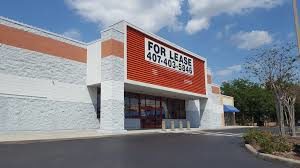 Vacancy Provision
Vacancy Provision
In some ways, personal insurance and commercial insurance have common threads.¬† But don’t kid yourself, getting your arms around commercial insurance is a considerable challenge.
Under a commercial property policy, coverage is significantly different for buildings that are vacant for extended periods. Usually, certain types of coverage are completely eliminated during the vacancy. Insurance companies are interested in protecting ongoing businesses and premiums are based upon active occupancy. Continued, full coverage may be provided, but that is only at the insurance company’s discretion. If a vacant risk is accepted, it usually means paying more premium.
Definitions
Before any coverage restrictions can be imposed, the insurance company must define exactly what they mean by vacancy and the definition is affected by the type of occupancy:
Tenant¬†– When the insured is a tenant and the policy covers that insured’s property interest, the definition of building is the unit or suite¬†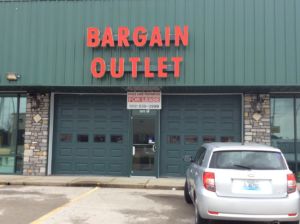 that has been rented or leased to the tenant. That building is considered vacant when it no longer contains enough business personal property to conduct the customary operations of the insured tenant.
that has been rented or leased to the tenant. That building is considered vacant when it no longer contains enough business personal property to conduct the customary operations of the insured tenant.
Building Owner Or General Lessee РWhen the insured is a building owner or general lessee, building is defined as the entire building. The building is considered vacant UNLESS a specified percentage of the total square footage is rented to a lessee or sub-lessee and used by the lessee or sub-lessee to conduct its customary operations OR is used by the building owner to conduct customary operations.
Buildings Under Construction РBuildings that are under construction or renovation are not considered to be vacant.
Vacancy Provisions
Now that vacancy has been defined, the vacancy condition can be stated. If the building where loss or damage occurs has been vacant (see definition above) for more than 60 consecutive days before the loss:
- the insurance company will pay NOTHING if the loss was caused by vandalism, sprinkler leakage, glass breakage, water damage, or theft (including damage from attempted theft).
- the insurance company will reduce any loss amount by 15% if the claim is due to any Covered Cause of Loss not listed above.
When vacancy does occur, many companies, for an additional premium, will add a provision (sometimes called a Vacancy Permit). This form changes the policy wording so that it provides coverage for the property during specific time periods when the applicable premises are vacant.
COPYRIGHT: Insurance Publishing Plus, Inc. 2017
All rights reserved. Production or distribution, whether in whole or in part, in any form of media or language; and no matter what country, state or territory, is expressly forbidden without written consent of Insurance Publishing Plus, Inc.

 Contact
Contact
 Email an Agent
Email an Agent

 Click to Call
Click to Call Get Directions
Get Directions


 Tragedy is often the precursor of innovation.  It certainly was during WW II.  It also drives changes and the creation of new products in the insurance industry.  The insurance sector exists because individuals, businesses and other entities have a need to transfer risks to another party.  Increasing active shooter incidents in recent years and the corresponding legal actions have created demand for products that can provide financial protection.
Tragedy is often the precursor of innovation.  It certainly was during WW II.  It also drives changes and the creation of new products in the insurance industry.  The insurance sector exists because individuals, businesses and other entities have a need to transfer risks to another party.  Increasing active shooter incidents in recent years and the corresponding legal actions have created demand for products that can provide financial protection. industry will over time and after numerous assessments develop standards that when deployed will ward off many would be active shooters.  They work for insurance companies will also work to reduce the after effects and of course provide financial relief.
industry will over time and after numerous assessments develop standards that when deployed will ward off many would be active shooters.  They work for insurance companies will also work to reduce the after effects and of course provide financial relief. In part one of this article, we discussed the situation of properly classifying workers. In this part, we discuss a method for making that distinction.
In part one of this article, we discussed the situation of properly classifying workers. In this part, we discuss a method for making that distinction. another element is the nature of the work. Some businesses want to minimize both their tax liability and legal liability (and related payroll costs) by use of independent contractors. However, the situation can’t be a façade. If workers have an ongoing relationship with the applicable business because the work is normal for that business, likely the work involves employees. When the work is unusual for the given business and lasts for a short period, especially when it involves specialize labor or skills not existing in that business, the work likely involves independent contractors.
another element is the nature of the work. Some businesses want to minimize both their tax liability and legal liability (and related payroll costs) by use of independent contractors. However, the situation can’t be a façade. If workers have an ongoing relationship with the applicable business because the work is normal for that business, likely the work involves employees. When the work is unusual for the given business and lasts for a short period, especially when it involves specialize labor or skills not existing in that business, the work likely involves independent contractors.
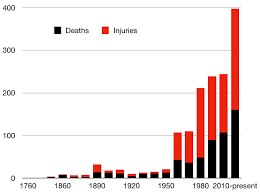 First, there is customer expectations. Insurance consumers may be under the impression that damage and injury created by shooters are covered. Second, the insurance market is fragmented over the issue depending upon how incidents are interpreted. Coverage may be sought from existing policies that individuals, commercial or non-profit entities may already carry, including General Liability, the Liability portion of Homeowners, or Workers Compensation. On the other hand, responsibility for harm due to a shooter may need to be covered by a form of professional liability policy as the obligation to protect against shootings may be considered as a failure to provide adequate security.
First, there is customer expectations. Insurance consumers may be under the impression that damage and injury created by shooters are covered. Second, the insurance market is fragmented over the issue depending upon how incidents are interpreted. Coverage may be sought from existing policies that individuals, commercial or non-profit entities may already carry, including General Liability, the Liability portion of Homeowners, or Workers Compensation. On the other hand, responsibility for harm due to a shooter may need to be covered by a form of professional liability policy as the obligation to protect against shootings may be considered as a failure to provide adequate security.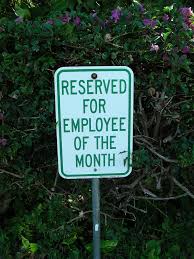 Because of the position held by policyholder/insureds and insurance companies, the classification of workers is often in conflict as insureds desire liberal coverage and insurers wish to restrict protection to qualified persons. However, both parties are best served when worker classifications are clear. Premiums charged to policyholders are based on correctly recognizing the parties eligible for coverage. Proper classification keeps coverage affordable and makes the insurance process more efficient. Coverage involving employees should be connected to an applicable business that employs them. Coverage involving independent contractors should be connected to the contractors. In other words, they should secure their own, separate coverage.
Because of the position held by policyholder/insureds and insurance companies, the classification of workers is often in conflict as insureds desire liberal coverage and insurers wish to restrict protection to qualified persons. However, both parties are best served when worker classifications are clear. Premiums charged to policyholders are based on correctly recognizing the parties eligible for coverage. Proper classification keeps coverage affordable and makes the insurance process more efficient. Coverage involving employees should be connected to an applicable business that employs them. Coverage involving independent contractors should be connected to the contractors. In other words, they should secure their own, separate coverage.

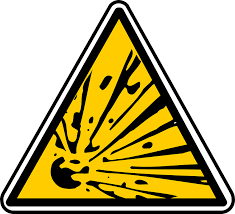
 At one time golf carts were seen exclusively on golf courses. Then, since golfing is part of the sports world, other sports saw their usefulness, so carts popped up along the sidelines of football fields and near baseball dugouts, shuttling players about. Today, many more people are aware of the non-sports usefulness of golf carts…..and that is becoming a problem.
At one time golf carts were seen exclusively on golf courses. Then, since golfing is part of the sports world, other sports saw their usefulness, so carts popped up along the sidelines of football fields and near baseball dugouts, shuttling players about. Today, many more people are aware of the non-sports usefulness of golf carts…..and that is becoming a problem.
 tremendous difference being in an accident on a grass surface as opposed to an asphalt, gravel, packed-dirt or cement road. Some accident statistics reveal that golf cart accidents often involve children who are hurt when flung from carts during turns.
tremendous difference being in an accident on a grass surface as opposed to an asphalt, gravel, packed-dirt or cement road. Some accident statistics reveal that golf cart accidents often involve children who are hurt when flung from carts during turns.
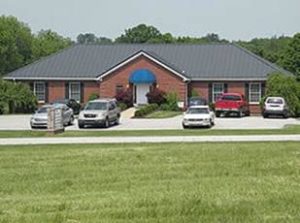            
           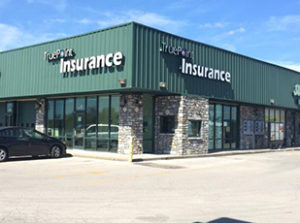
                          PHONE: (502)410-5089                                                          
                         PHONE: (502)410-5089                                                          



